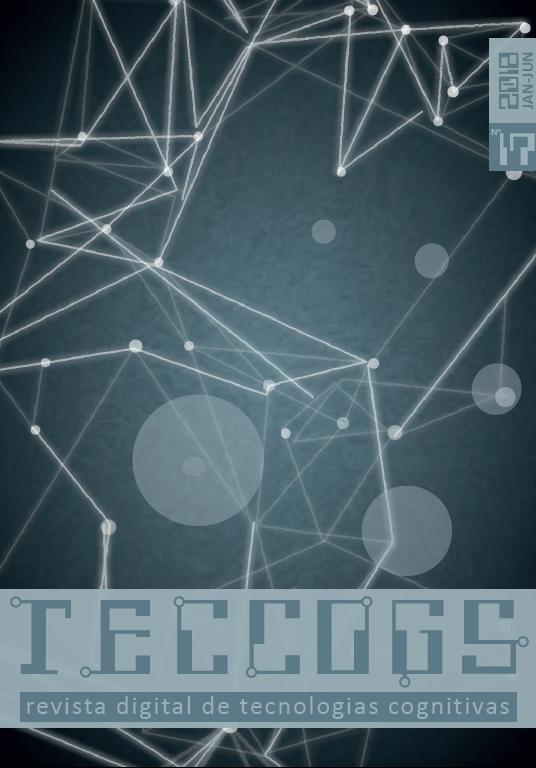Artificial Intelligence: a utopia, a dystopia
DOI:
https://doi.org/10.23925/1984-3585.2018i17p32-43Keywords:
Artificial Intelligence, Machine Learning, Job marketAbstract
The search for artificial intelligences seems to have reached a point where many long-promised technologies have become reality. In particular, the heavy use of large databases has led to the development of systems for image recognition, natural language understanding, and decision making, whose performance often reaches, and sometimes surpasses, human performance. This technological advance has produced optimistic and pessimistic reactions. Some opinions are enthusiastically positive in believing that the future will bring enormous riches to everyone, while others foresee the end of humanity. Between these extremes, one can find a varied set of positions. This paper tries to capture these positions using a set of “dystopias” and “utopias”. In the end we reach a “realistic utopia” that serves as a plausible goal for society, in contrast to a “realistic dystopia” that represents a credible model that must be avoided.
References
BOSTRON, Nic. Superintelligence: paths, dangers, strategies. Oxford: Oxford University Press, 2014.
BRYNJOLFSSON, Erik; McAFEE, Andrew. The second machine age. New York, NY: Norton, 2014.
FREEMAN, Richard B. Who owns the robots rules the world, Harvard Magazine, vol. 118, nº. 5, MayJune, p. 37-39, 2016.
FREY, Carl Benedikt ; OSBORNE, Michael A. The future of employment: How susceptible are jobs to computerisation? Technological forecasting and social change, vol. 114, issue C, p. 254-280, 2017.
NILSSON, Nils. The quest for artificial intelligence: a history of ideas and achievements. Cambridge: Cambridge University Press, 2009.
MCCARTHY, J. MINSKY, M. L. ROCHESTER, N. SHANNON, C. E. A proposal for the Dartmouth Summer Research Project on Artificial Intelligence. August 31, 1955. AI Magazine, vol. 27, nº 4. Disponível em:
https://aaai.org/ojs/index.php/aimagazine/article/view/1904/1802. Acesso em: 3 jun, 2018.
OSOBA, Osonde. WELSER IV, William. An intelligence in our image: the risks of bias and errors in artificial intelligence. Santa Monica, CA: Rand, 2017.
TURING, Alan. Computing machinery and intelligence, Mind, vol. 59, issue 236, October 1950, p. 433-460.
Downloads
Published
How to Cite
Issue
Section
License
Copyright (c) 2018 Fabio Gagliardi Cozman

This work is licensed under a Creative Commons Attribution 4.0 International License.
Esta revista oferece acesso livre imediato ao seu conteúdo de acordo com a licença CC BY 4.0, em conformidade com a definição de acesso público do Directory of Open Access Journals (DOAJ).
Ao submeter um texto à TECCOGS, os autores asseguram que o material submetido à avaliação e eventual publicação não infringe de modo algum qualquer direito proprietário ou copyright de outros. Com a submissão, o autor transfere em efetivo os direitos de publicação do artigo para a TECCOGS. A transferência de copyright cobre os direitos exclusivos de publicação e distribuição do artigo, incluindo reimpressões ou quaisquer outras reproduções de natureza similar, além de traduções. Os autores mantém o direito de usar todo ou partes deste texto em trabalhos futuros de sua autoria e de conceder ou recusar a permissão a terceiros para republicar todo ou partes do texto ou de suas traduções. Para republicar números da revista na íntegra, qualquer interessado precisa obter permissão por escrito tanto dos autores como também dos editores da TECCOGS. A TECCOGS por si só pode conceder direitos relativos a emissões de periódicos como um todo.
Imagens com direitos autorais pertencentes a terceiros, que não foram concedidos ao autor do texto, devem ser utilizadas somente quando necessárias à análise e ao argumento da pesquisa, sempre indicando as respectivas fontes e autoria. A TECCOGS dispensa o uso de imagens meramente ilustrativas. Se desejar ilustrar um conceito, o autor deve indicar, em forma de URL ou referência bibliográfica, uma referência em que a ilustração esteja disponível.
---------------------------------------------------------------------------------
This journal offers free immediate access to its content under CC BY 4.0, in accordance with Directory of Open Access Journals' (DOAJ) definition of Open Acess.
When submitting a text to TECCOGS, authors ensure that the material submitted for evaluation and eventual publication does not infringe any proprietary right or copyright. Upon submission, authors effectively transfer the publication rights of the article to TECCOGS. The copyright transfer covers the exclusive rights of publication and distribution of the article, including reprints or any other reproduction of similar nature, in addition to translations. Authors retain the right to use all or parts of the text in future works of their own, as well as to grant or refuse permission to third parties to republish all or parts of the text or its translations. In order to fully republish issues of the magazine, anyone interested must obtain written permission from both the authors and the editors of TECCOGS. TECCOGS alone can grant rights relating to issues of journals as a whole.
Images whose copyright belongs to third parties that have not been granted to the author of the text should be used only when essential for the analysis and argument, always indicating theirs respective sources and authorship. TECCOGS dismisses any use of merely illustrative images. To illustrate a concept, the author must indicate, in the form of a URL or bibliographic reference, a source in which the illustration is available.


